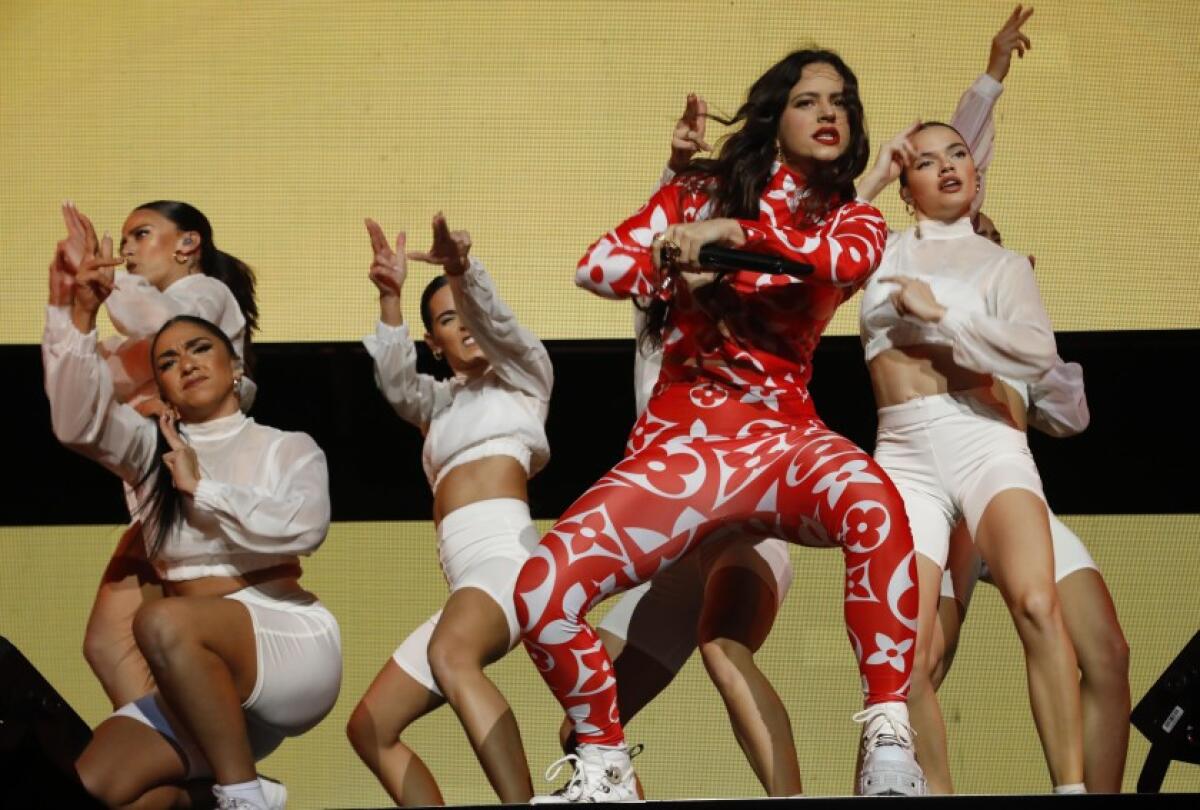Latin music term ‘urbano’ comes under scrutiny in wake of protests

In the wake of the nationwide protests sparked by the killing of George Floyd at the hands of police, and following last week’s music business-led Blackout Tuesday, music executives began to reconsider or eliminate the use of the word “urban” to define a genre of music. The catchall term has been used for decades to categorize rhythmic music made by Black artists — R&B and hip-hop, primarily — yet the connotations of its name often serve to segregate those acts from mass-market platforms such as Top 40 radio and limit the range of Black voices accepted within the genre.
Republic Records, home to Drake, Ariana Grande and Taylor Swift, stated it will no longer use the term when referring to departments, employee titles and genres. And on Wednesday, the Recording Academy announced its decision to rename the Grammys’ urban contemporary category to progressive R&B album.
Some influential Latin music journalists have likewise announced they too will be phasing out a similar shorthand. Moving forward, many have said they will no longer employ the umbrella term “urbano” that is frequently attached to the popular Latin trap, reggaeton and dembow genres, all influenced by hip-hop, made by such artists as Bad Bunny, J Balvin and Karol G.
The term “urbano” originates from Afro-Latinx communities that first created its music and sounds. It is a response, and also a form of resistance, to the displacement of Black communities within Latin America. However, “urbano” is now used to describe the modern wave of Latin music that has ties with hip-hop and trap music. Pitchfork, for instance, recently published a list of 50 essential “Urbano” songs, stating, “Música urbana has always provided space for multiplicity — for pleasure, for protest, for romance. It is the soundtrack of struggle and joy.”
Bad Bunny may be the ultimate 21st-century global superstar: a bilingual singer, rapper and style icon with progressive social views who releases songs whenever he wants.
Eduardo Cepeda of Remezcla, an influential Brooklyn-based Latinx music and culture publication, understands the cultural and musical complexities the term carries. The music editor released an editorial note on the publication’s website addressing why it will discontinue the use of the terms “urbano” and “música urbana,” and instead replace it with the term “movimiento.”
“These are terms that are inextricably linked to a history of exclusion and segregation within the music industry,” wrote Cepeda. “Within the recording industry and in award shows, the word [‘urban’] has been used as a way to separate Black artists, while hypocritically allowing many white artists to freely navigate in and out of numerous categories — including urban. ... ‘Urbano’ comes with a fraught and problematic history reeking of exclusion and othering.”
Cepeda told The Times, “Often in Latin America, you read or hear about ‘el moviemiento urbano.’ It’s a common phrase, so it seemed easy to remove the word ‘urbano.’ We’re not necessarily telling people this is what you should call the genre. We just want to make sure people understand that ‘urbano’ doesn’t serve the community.”
He hopes the use of “movimiento” will open up a larger conversation on the exclusion of Black artists within genres such as Latin trap, reggaeton and dembow.

In an article for Rolling Stone, Latin music editor Suzy Exposito approved of Remezcla’s decision, writing that “urbano” is largely a marketing term that does not do justice to the actual music being made — which is predominantly by non-Black artists.
“White Hispanic artists are more able to hop from genre to genre. They’re given the room to experiment by audiences and critics, to be all things to the extent that Black artists cannot,” Exposito told The Times. “We should be consulting Black artists and see how they feel about the term. See if they feel the same way that Tyler, the Creator feels about it.”
After winning in this year’s rap album category at the 62nd Grammy Awards, Tyler, the Creator cited his disappointment with the term “urban,” saying, “It’s just a politically correct way to say the n-word.”
Reggaeton and Latin trap artists Tempo and Nicky Jam were asked about the term “urbano” in a Spanish video interview with Rapetón, a Latin rap media outlet. They responded with their support of dropping the umbrella term in favor of calling each by its stated genre.
For its part, the Latin Recording Academy has modernized the 2020 Latin Grammy Awards, tentatively scheduled to take place in November, adding awards for reggaeton performance and rap/hip-hop song. However, it still uses the term “urban” or “urbano” for multiple categories, including urban music album and urban song.
More to Read
The biggest entertainment stories
Get our big stories about Hollywood, film, television, music, arts, culture and more right in your inbox as soon as they publish.
You may occasionally receive promotional content from the Los Angeles Times.








